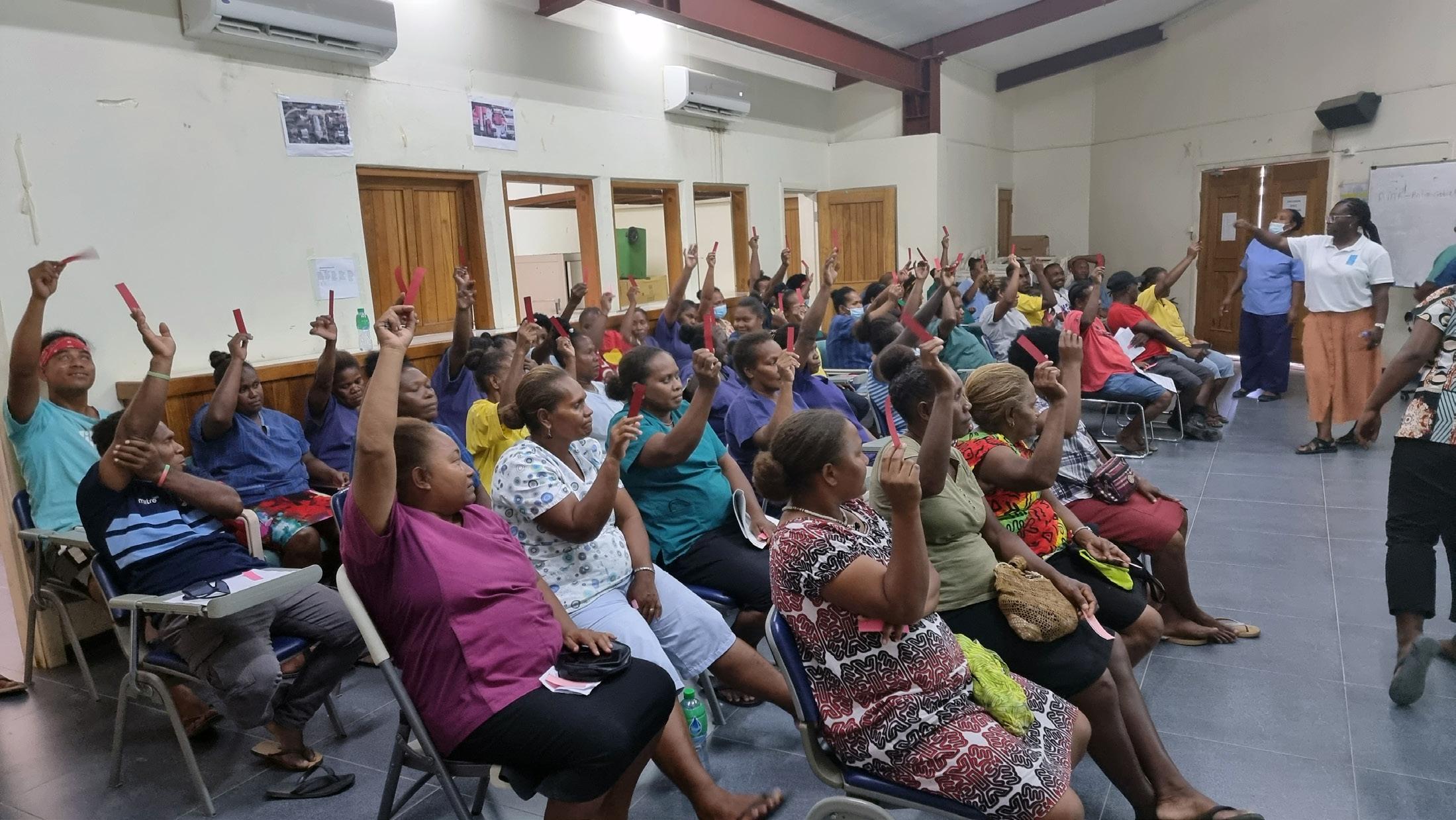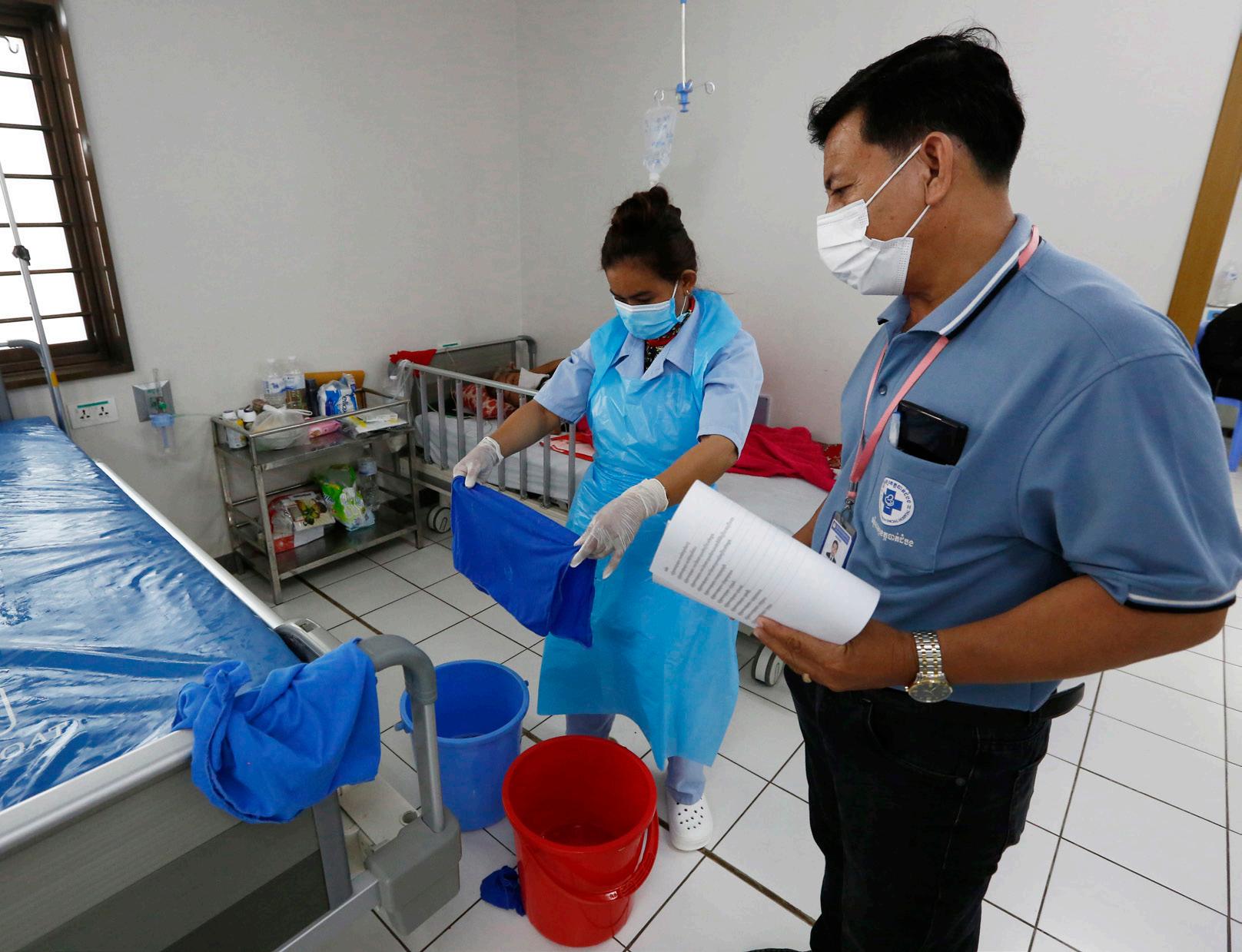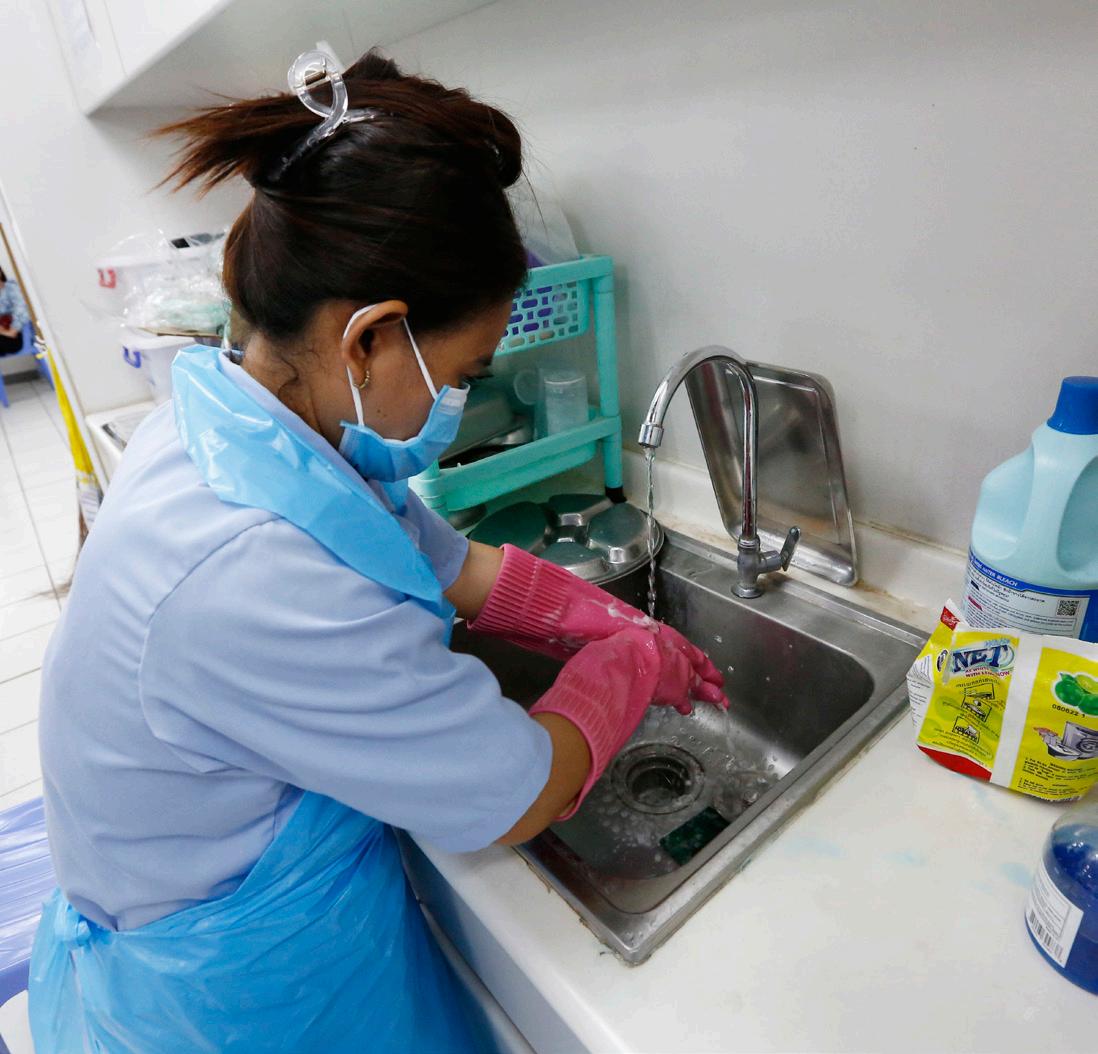
1 minute read
Our Work in Healthcare Facilities
Antimicrobial resistance (AMR) is among today’s most significant global health threats. The World Health Organization (WHO) has warned that if we don’t take immediate action to address this issue, we could face a future where common infections are no longer treatable. One of the critical drivers of AMR is poor water, sanitation, and hygiene (WASH) practices.
Through the DFAT Centre for Health Security program, WaterAid is one of the multiple sector partners of the COMBAT-AMR program. The program consists of partners implementing training, mentorship, and capacity building to improve infection prevention and control systems and minimise the threat of AMR within major health facilities across selected Pacific countries.
Advertisement
WASH in healthcare facilities and AMR are closely interlinked. When people don’t have access to clean water in healthcare facilities or adequate sanitation facilities, they are more likely to get sick from healthcare associated infections. This can lead to the overuse and misuse of antibiotics, which can contribute to the development of AMR. However, improving access to clean water, proper sanitation and environmental cleaning in healthcare facilities can help reduce the spread of infections, ultimately reducing the need for antibiotics. Additionally, promoting good hygiene practices such as handwashing can help prevent infections from occurring in the first place.
With technical support from the Nossal Institute, WaterAid supports WASH interventions in tertiary level hospitals in Fiji, the Solomon Islands, Papua New Guinea (PNG), and Samoa as part of the COMBAT-AMR program. The WASH interventions that WaterAid has facilitated include annual WASH audit plans, the development of WASH standard operating procedures and guidelines
WaterAid has also been working to establish a safer and cleaner environment for patients, their family and visitors, staff and cleaners in hospitals throughout Cambodia by providing environmental training and cleaning materials to cleaners and healthcare workers with cleaning responsibilities across thirteen hospitals in Kampong Chhnang, Battambang, and Kratie provinces adaptable to local needs, and contributing to professional development education and training for the IPC team, cleaners, and ground staff of the hospital facilities.

In 2022, WaterAid conducted WASH and IPC baseline assessments at the national hospitals in Fiji, PNG and Solomon Islands. The WHO Infection Prevention and Control Assessment Framework, and the Water and Sanitation for Health Facility Improvement Tool (WASH FIT) were used to guide discussions and observations of WASH services & IPC activities at the healthcare facilities. The same process was undertaken in Samoa early 2023. WaterAid aims to use the results from the assessments to champion WASH across hospital governance and support improvements to quality of care whilst reducing AMR.









